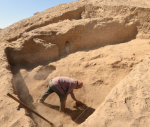You are here
Jordan can lead the change
Dec 31,2015 - Last updated at Oct 23,2023
The results of a study just conducted by Lilian Halls, Amneh Helweh, Tara Wekhyan and myself on Jordan’s role in and impact on initiating a policy tool of the Euro-Med Ministerial Process (EMMP), which Jordan joined in 2006 for the purpose of strengthening the role of women in society, show the challenges the country has been encountering in the field, but also opportunities.
The challenges need to be addressed and the opportunities utilised more effectively to yield more gains.
The challenges are either culture-specific or operational and logistical.
EMMP’s three core principles, with which Jordan is expected to actively engage, are: equal rights of women and men to participate in the political, economic, civil and social life; combating all forms of violence and discrimination against women and girls; change in attitude and behaviour to attain gender equality, with a view to promote women empowerment.
These are pivotal human rights pillars that countries are expected to diligently pursue and attain in order to build non-discriminatory, non-biased and non-prejudiced human communities.
Unfortunately, the implementation processes and the ultimate attainment of such core principles in Jordan, and the Arab world at large, is currently impeded by many factors.
First and foremost is the revival of extreme dogmas and conservative trends that negatively affect women’s rights.
Some influential political and societal circles employ both nationalistic and religious discourse to de-prioritise calls for gender equality, framing women empowerment as “colonial” and as a betrayal of religion, tradition and indigenous culture.
Another challenge has to do with the paradox posed by the political stand of many European countries towards the Israeli occupation.
While there is a great deal of emphasis by Europe on the full and unconditional liberation of Arab women from patriarchal mindsets and discrimination, there is a total vacuum in its discourse when it comes to the emancipation of Palestinian women from Israeli occupation.
Such paradoxical stance has left many in Jordan and the Arab world not only deeply upset by what they see as double standards, but also sceptical and suspicious of the “agenda” behind Europe’s interest in and drive to liberate Arab women.
A third important factor is directly linked to the current turmoil in the region.
Jordan has found itself at the receiving end of the human disaster that emanated from the militarism and chaos in the region.
Hundreds of thousands of refugees sought asylum in Jordan. Their presence in the country has put much pressure on the government, taxing valuable resources and taking much of the government’s time and attention.
Furthermore, due to deterioration of security in many neighbouring countries, Jordan’s security has, understandably, become of prime importance.
Coping with the influx of refugees and making the country’s security a matter of priority, however, sidelined other important issues, including women’s empowerment and rights, which are given secondary attention.
As for the opportunities, despite the challenges and inhibiting factors, there is real promise, through the full engagement with EMMP, that the gender, cultural and performance gaps will be bridged.
Jordan needs to view matters from the right angle and play the game right.
First, involvement in and collaboration with the Euro-Med countries should be based on compatibility and effective partnership, so that the efforts of all those involved and their input, implementation and performance are governed and negotiated through consensus and equal participation.
Euro-Med initiatives, tactics and projects should be debated in national dialogues, and then appropriated by the concerned stakeholders in the local communities.
If the initiatives are embraced at both national and local levels, rather than being imposed, stakeholders will carry them out with eagerness and understanding, will help disseminate the outcome that will be embraced by governmental and non-governmental organisations alike.
Short of this, international agreements pertaining to women rights will merely yield highly selective and fragmented results, consuming, in the process, much energy and effort, and causing disillusionment and even a backlash regarding gender equality.
Second, follow-up is essential.
Any agreement that is not carried out in full and that lacks a rigorous mechanism of evaluation, analysis and monitoring is doomed to be ineffective.
The gap between what one aspires to and what one achieves, between what one intends and what one actually delivers needs to be bridged.
Agreements are signed for the purpose of being implemented, and after implementation, a series of follow-up and assessment processes is needed.
Most of the time, our institutions are good at signing but not implementing fully. And when they implement, they compromise on the follow-up and assessment processes.
The precious mechanisms of implementation, and then measurement and evaluation are direly needed.
There is a third important opportunity: enhancing channels of solidarity and networking among women’s organisations.
The direct aim here is to form a critical mass of women and women’s organisations capable of exerting the required pressure to mobilise women’s groups and press for the required change.
Unfortunately, financial and material resources available to women activists in NGOs and CSOs, nationally and internationally, are limited and the competition for such resources has created a lot of division and fragmentation among women activists.
Fierce competition for fundraising has almost become an end in itself, and has been a great divider.
There is need, therefore, to link fund-raising to cooperation across organisations, to collaboration, networking and coalition building.
A lot must be done to pave the road for gender-equal communities in Jordan and the region.
EMMP is a golden opportunity, and Jordan and the region will benefit a lot from it if they respond to and address both challenges and opportunities effectively and sustainably.
If they do not do so, our engagement will be either symbolic or partially fulfilling, if not counterproductive.
Jordan could be a leader in such a drive.
The writer, professor at the American University of Madaba, is a consultant on gender studies and feminist theories for several national and regional associations. She contributed this article to The Jordan Times.












